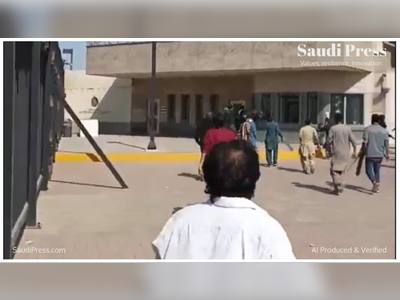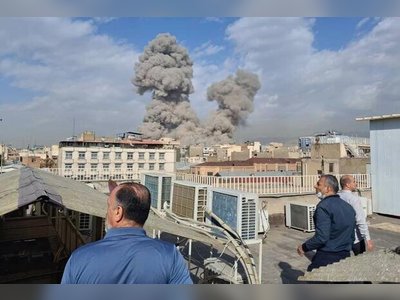
Venezuela's Crumbling Economy Reflects in Water Scarcity of Oil Capital Maracaibo
In Venezuela's oil-rich city, a drilling frenzy yields water rather than petroleum; a symbol of the country's economic woes.
Maracaibo, the once-thriving oil capital of Venezuela, is now plagued by a severe water crisis.
Despite the drilling of dozens of new wells in recent years, residents have been pumping out water instead of the valuable resource they were hoping for — petroleum.
The situation highlights the broader economic decline and mismanagement gripping the nation.
Schools, homes, churches, and health centers across the city are resorting to digging their own private wells due to a corroded infrastructure that has led to frequent water cuts.
These wells come at a significant cost, with prices ranging from $1,000 to $6,000, an exorbitant sum in a country where the minimum monthly wage is approximately $200 and where economic sanctions have impacted financial stability.
Water rationing has been a practice in many Venezuelan cities for years, but Maracaibo's situation has reached critical levels due to malfunctioning pumping stations, leaking pipes, and depleted reservoirs.
In some areas of the city, water was completely absent from taps for over a month at the start of 2025.
Residents have found alternative solutions, including drilling deeper wells that can store large amounts of spring water weekly, albeit with high salinity due to saltwater intrusion from the Caribbean Sea into Lake Maracaibo.
The water is not safe for consumption but serves as an adequate substitute for washing clothes and flushing toilets.
The city has seen an increase in private well construction, both for short-term and long-term solutions to address the water scarcity.
Gabriel Delgado, a local resident, has constructed over 20 wells, including those at healthcare facilities and educational institutions.
Despite official requirements for authorization and testing of water samples to ensure potability, not all adhere to these guidelines, leading to concerns about the quality and safety of the water consumed by some residents.
Despite the drilling of dozens of new wells in recent years, residents have been pumping out water instead of the valuable resource they were hoping for — petroleum.
The situation highlights the broader economic decline and mismanagement gripping the nation.
Schools, homes, churches, and health centers across the city are resorting to digging their own private wells due to a corroded infrastructure that has led to frequent water cuts.
These wells come at a significant cost, with prices ranging from $1,000 to $6,000, an exorbitant sum in a country where the minimum monthly wage is approximately $200 and where economic sanctions have impacted financial stability.
Water rationing has been a practice in many Venezuelan cities for years, but Maracaibo's situation has reached critical levels due to malfunctioning pumping stations, leaking pipes, and depleted reservoirs.
In some areas of the city, water was completely absent from taps for over a month at the start of 2025.
Residents have found alternative solutions, including drilling deeper wells that can store large amounts of spring water weekly, albeit with high salinity due to saltwater intrusion from the Caribbean Sea into Lake Maracaibo.
The water is not safe for consumption but serves as an adequate substitute for washing clothes and flushing toilets.
The city has seen an increase in private well construction, both for short-term and long-term solutions to address the water scarcity.
Gabriel Delgado, a local resident, has constructed over 20 wells, including those at healthcare facilities and educational institutions.
Despite official requirements for authorization and testing of water samples to ensure potability, not all adhere to these guidelines, leading to concerns about the quality and safety of the water consumed by some residents.











